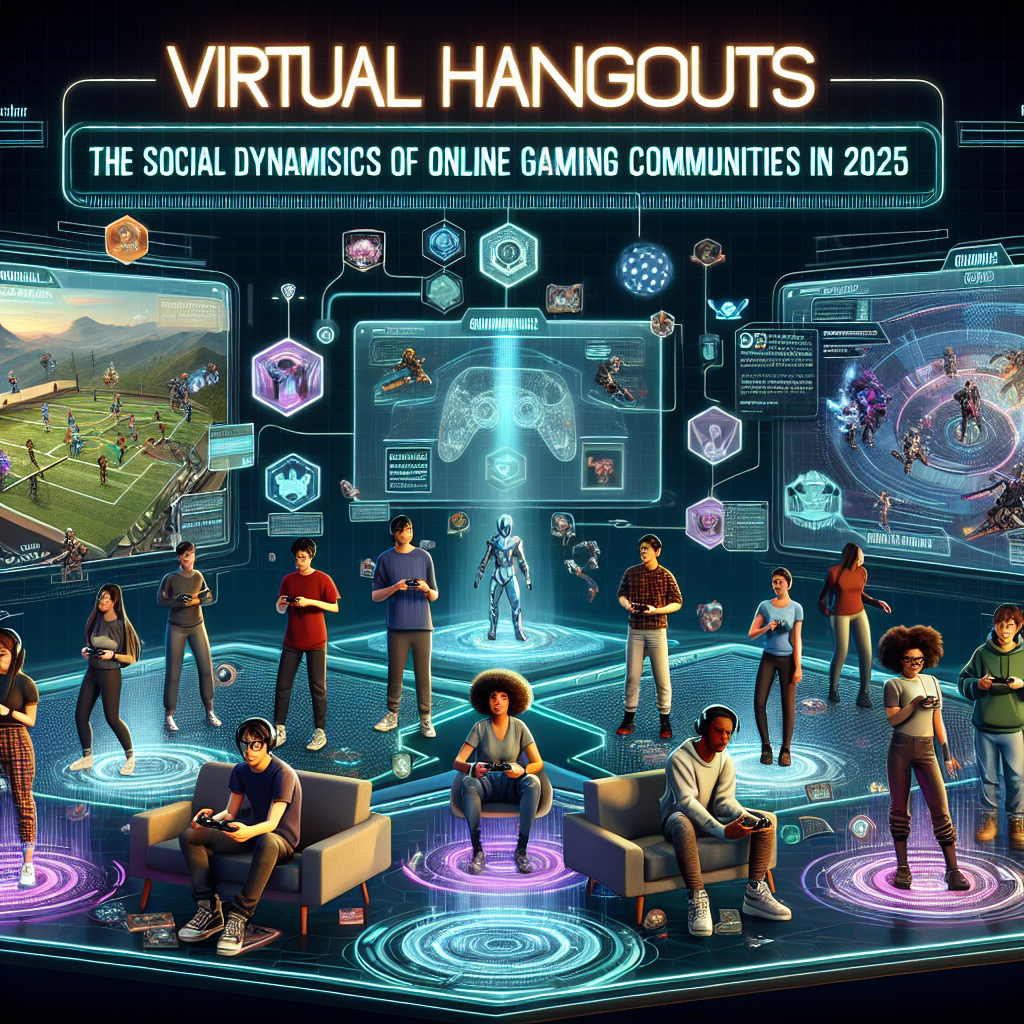Virtual Hangouts: The Social Dynamics of Online Gaming Communities in 2025
As we move further into the digital age, the lines between virtual and physical social interactions continue to blur. By 2025, online gaming communities have transformed into vibrant social ecosystems, offering players not just a chance to compete or collaborate in games, but also spaces for friendship, creativity, and cultural exchange. This evolution raises important questions about social dynamics in these digital gatherings and their implications for real-world relationships.
The Rise of Virtual Hangouts
In 2025, the landscape of online gaming has matured significantly. The advent of advanced virtual reality (VR), augmented reality (AR), and the metaverse by major tech companies created immersive experiences that go beyond traditional gaming. Platforms like Meta’s Horizon Worlds, Roblox, and Fortnite have expanded their functionalities to include social hangouts, events, and interactive worlds where players can engage as much socially as they do competitively.
Instead of merely logging in for a quick gaming session, users are creating avatars and entering sprawling digital cities where they can attend concerts, watch live sports, or join community-building activities. The term "virtual hangout" has become synonymous with the social experience of gaming, where players can gather in a space that feels both communal and personal.
Community Building and Connection
The sense of belonging is a fundamental aspect of human nature, and online gaming communities in 2025 have responded to this need in profound ways. Games are no longer just a means of entertainment; they serve as platforms for community building. Players frequently form "guilds," "clans," or "teams" that enable them to cultivate friendships beyond the game. These groups organize in-game events, joint competitions, and even real-life meetups, fostering strong bonds among members from various backgrounds and geographic locations.
As online identities become more fluid and complex, the phenomenon of "digital personas" also emerged. Players express themselves through customized avatars and profiles, allowing them to explore aspects of their identity in ways that may be difficult or impossible in the physical world. This self-expression is a vital part of online interactions; it contributes to a sense of belonging and encourages acceptance among diverse player bases.
The Role of Social Tools
The evolution of communication tools within gaming platforms has also played a critical role in shaping social dynamics. By 2025, features like voice chat, video sharing, and integrated social media connectivity have become commonplace. Players seamlessly share experiences, strategies, and even personal stories during their gaming sessions. Enhanced tools for moderation and reporting enable healthier community interactions, minimizing toxicity and promoting inclusiveness.
Moreover, the integration of artificial intelligence (AI) in gaming environments helps tailor experiences for players, making social interactions feel more authentic. AI-driven chatbots provide instant information and help players navigate social situations, while machine learning algorithms assist in matchmaking based on not just skill levels but social compatibility, enhancing the overall experience for everyone involved.
Challenges and Opportunities
While the benefits of virtual hangouts and online gaming communities are evident, challenges remain. Issues such as online harassment, cyberbullying, and addiction continue to loom large. As communities grow and become more diverse, understanding and tolerance are critical. Developers and owners of gaming platforms are taking active steps to combat toxicity by promoting positive behavior through initiatives and reward systems.
Moreover, the digital divide remains a significant concern, with access to advanced technology not equal for all players. Efforts to democratize access—through affordable hardware, subsidized internet services, or community outreach programs—are necessary to ensure that everyone can enjoy the benefits of these rich social landscapes.
Looking to the Future
The future of online gaming communities is promising, with the potential to redefine how we connect with others. As technology advances, virtual hangouts will become even more immersive, allowing players to interact in networks that simulate real-world social dynamics.
Collaborative events like eSports competitions, virtual exhibitions, and interactive storytelling will illustrate the evolving nature of community building. As players continue to develop digital friendships and communities that can span the globe, the ultimate challenge will be to maintain a healthy balance between virtual interactions and real-world relationships.
In 2025, virtual hangouts have become a powerful testament to the adaptability of human connection, proving that even in a digital landscape, the need for camaraderie, understanding, and support remains as crucial as ever. Whether through defeating a common enemy, creating art together, or celebrating each other’s victories, online gaming communities serve as a reminder of our intrinsic desire to connect and belong.




